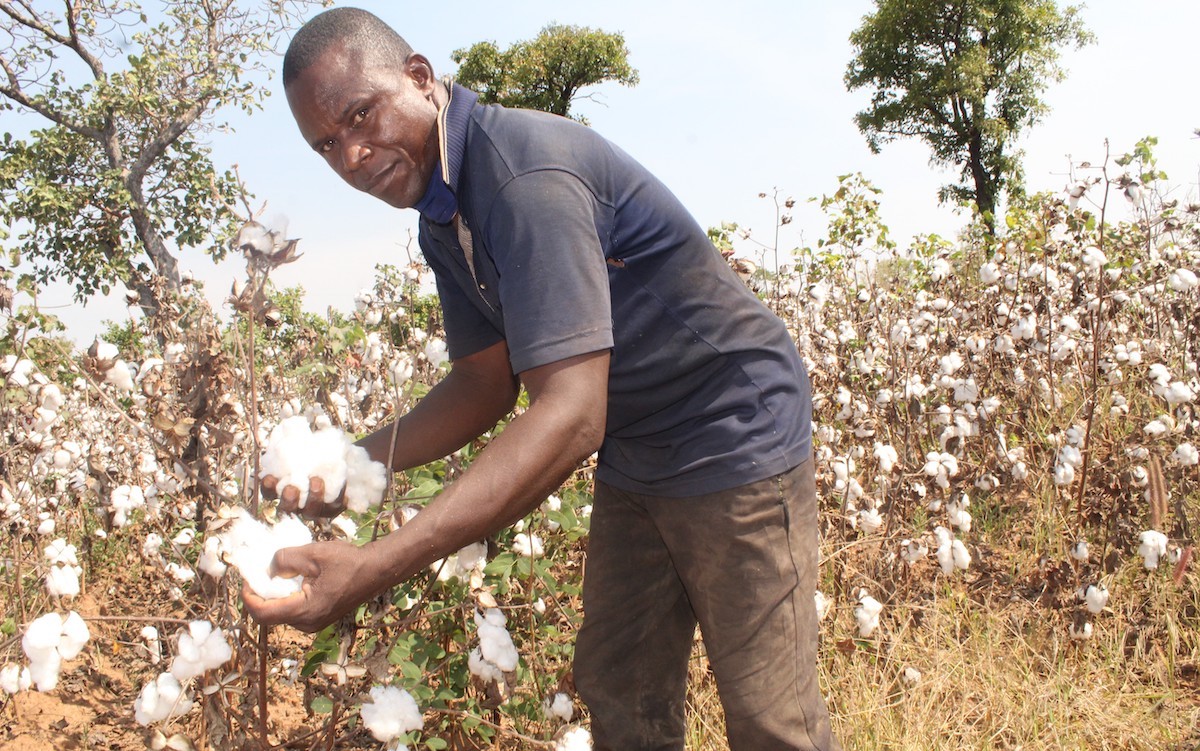Cotton is a major cash and export crop for farmers in Togo, making it a significant contributor to the country’s economy. However, the cultivation of cotton, like other agricultural commodities, faces major challenges: low productivity, relatively weak farmer organizations, and limited access to financial and technical services.
Though cotton played a more prominent role in the country’s economy, production experienced a significant decline between 2021 and 2023. This was the result of a number of factors, including limited access to quality inputs and limited knowledge on how to apply them effectively, pest infestations, climate fluctuations, and a reduction in the number of producers.
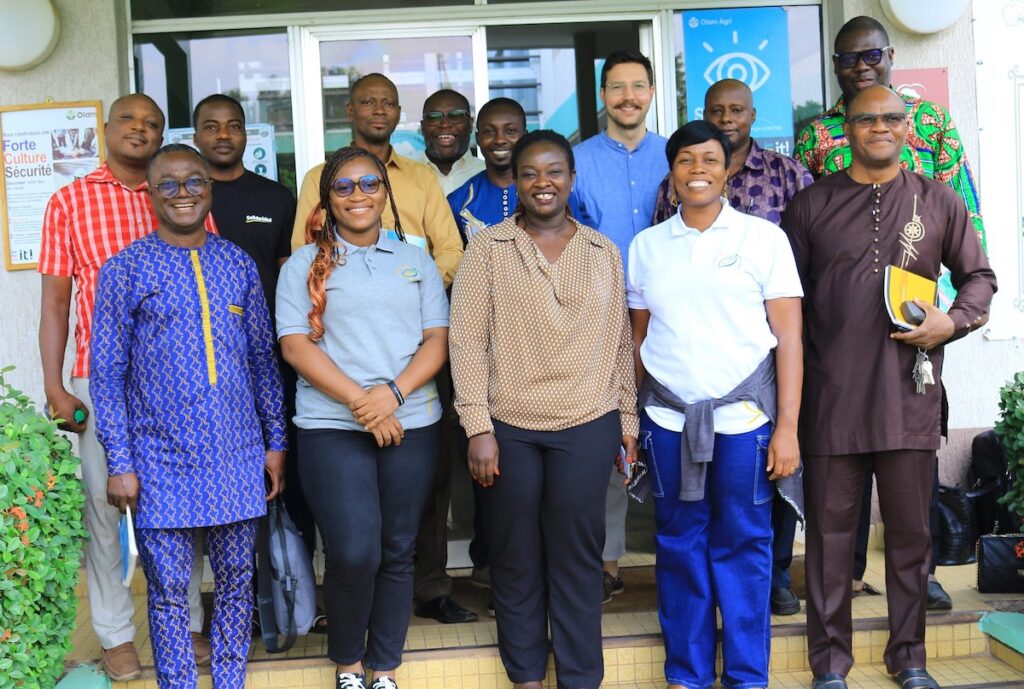
Solidaridad and the Deutsche Gesellschaft für Internationale Zusammenarbeit (GIZ) GmbH have partnered with the Nouvelle Société Cotonnière du Togo (NSCT) to establish the Supporting Sustainable Cotton Production (SSCP) project. The programme plans to provide services to 10,000 farmers in Togo with a focus on building their capacity to implement good agricultural practices and improve productivity.
Assisting farmers with training and access to finance
Solidaridad and implementing partners have established Farmer Field Schools as part of the SSCP’s Cotton Producers’ Academy initiative that will provide farmers with in-person learning opportunities. After completing the Farmer Field Schools‘ training, the farmers will receive regular coaching via a digital tool. Rural Service Centers will also be established to improve access to quality inputs and other farm management services.
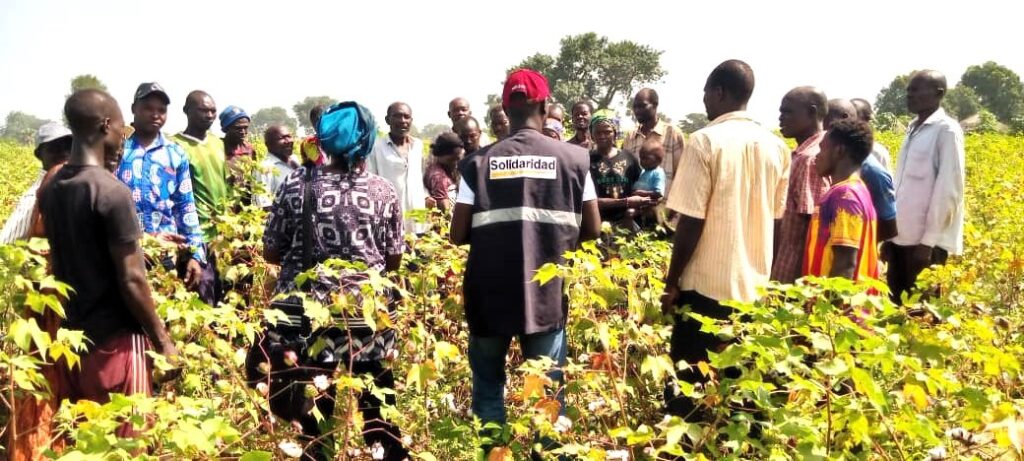
Access to finance is another important aspect of the project. Currently, 55 Village Savings and Loans Associations (VSLA) have been established and received training in the VSLA methodology. These groups comprise 1,169 members, including 535 women.
Assessing project impact
In January, Maximilian Graser, the GIZ focal person for the project, visited project participants in the communities of Malatè and Kara in Togo.
Maximilian met with members of the Cotton Producers’ Group, cooperatives and Village Savings and Loans Associations in Malatè. Those who met with Maximilian had been trained in good agricultural practices and certification standards, as well as in good social and environmental practices in a Farmer Field School. During the visit, participants shared their perspectives about the project, and together with Maximilian, began to collaboratively build out the project’s next steps.
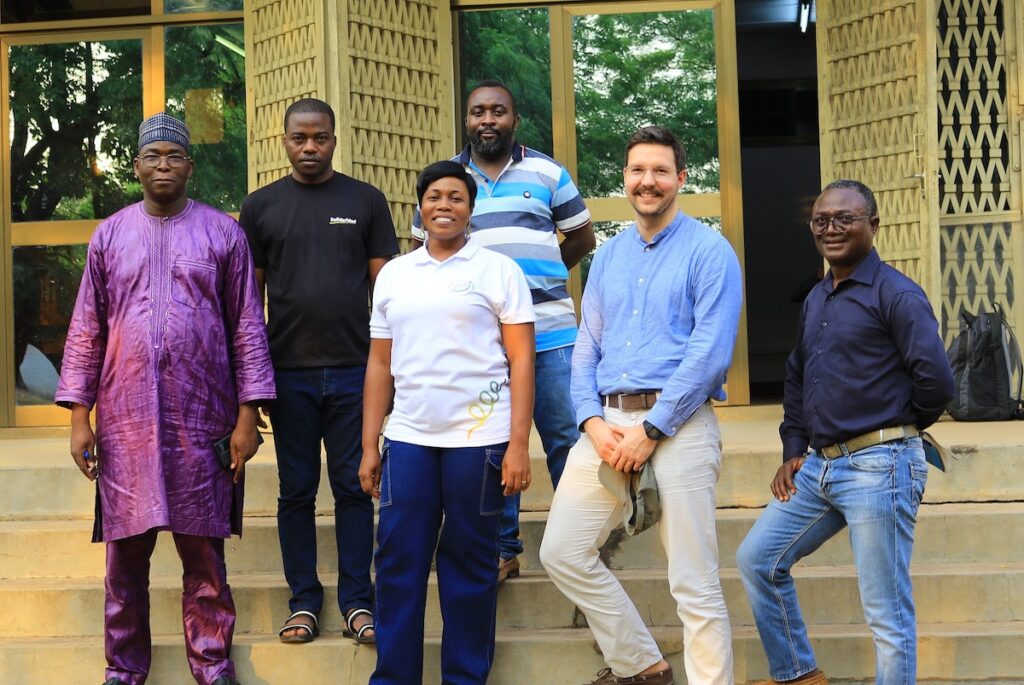
“Today, thanks to the association, I am becoming a financially independent woman capable of paying for my children’s education and contributing to their development. Several women in my community now have income-generating activities and are making progress towards achieving financial independence. We are ready to share the VSLA story with others,” said Agnon Koroudji, treasurer of the Malatè VSLA and a project participant.
Maximilian’s visit provided Solidaridad and its partners an opportunity to share the results of the project and gather feedback for improvement.
The Supporting Sustainable Cotton Production initiative will continue to introduce innovative practices to Togo’s cotton sector to enhance the sustainability of cotton production and income sources of producers.
Estelle Kouakou, Solidaridad SSCP Programme Manager in Côte d’Ivoire, Chad and Togo
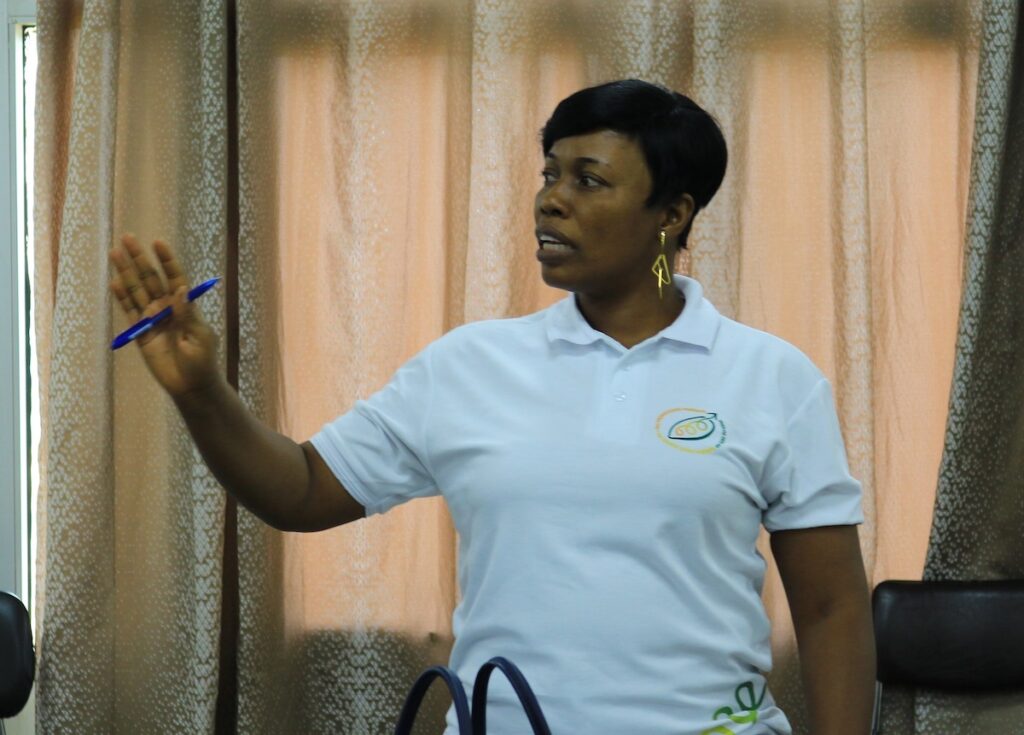
About the Supporting Sustainable Cotton Production project
The three-year SSCP project has been implemented in partnership with OLAM Agri through its subsidiaries Nouvelle Société Cotonnière du Togo, Société d’Exploitation Cotonnière Olam in Côte d’Ivoire and Cotton Tchad in Chad. The project has been supported by the Sustainability and Value Addition in Agricultural Supply Chains programme from the Deutsche Gesellschaft für Internationale Zusammenarbeit (GIZ) GmbH, on behalf of the German Federal Ministry for Economic Cooperation and Development (BMZ).
Overall, the project has sought to assist a total of 32,500 cotton producers, including women and youth in Togo, Côte d’Ivoire and Chad, in an effort to encourage sustainable cotton production with minimized chemical inputs and negative environmental impact, while enhancing resilience to climate change. The Supporting Sustainable Cotton Production initiative is a powerful example of how collaboration can unite communities and ensure a sustainable cotton future. Learn more here about Solidaridad’s work in cotton and textiles.

